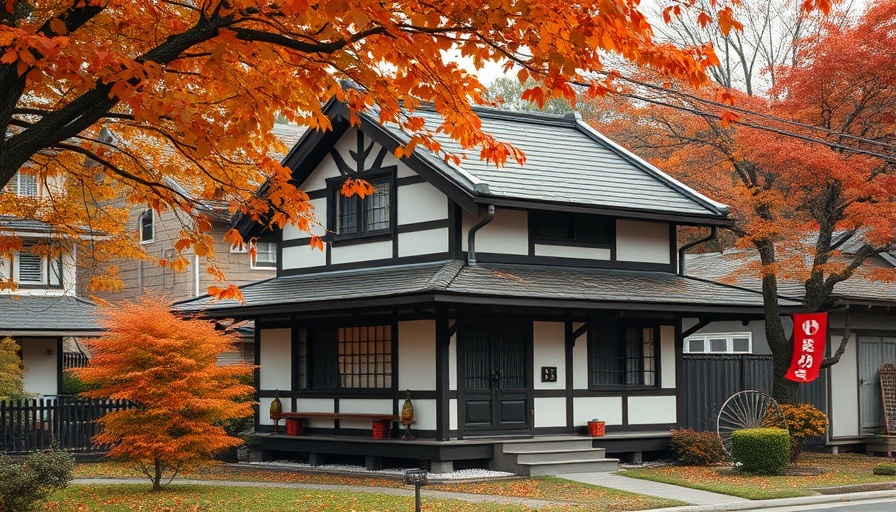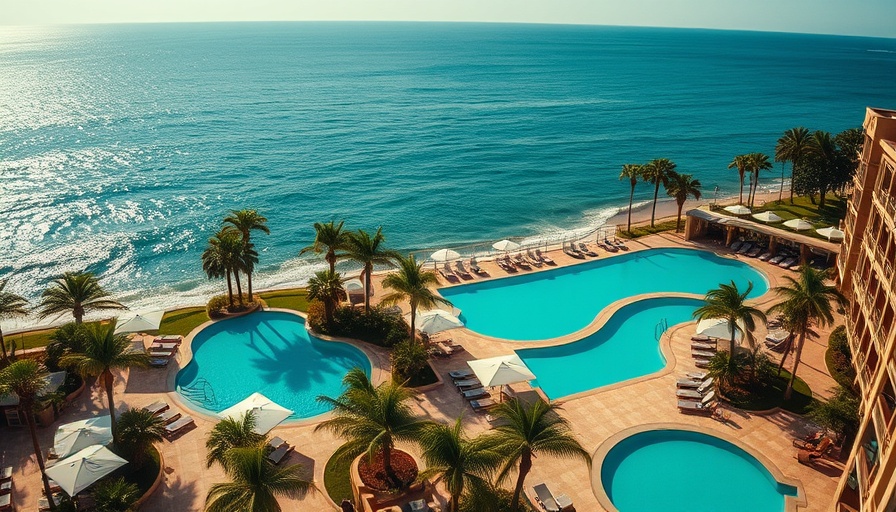
Understanding Japan's Akiya: A Cultural and Economic Shift
In recent years, Japan has grappled with a growing phenomenon known as 'akiya' – vacant homes that have been left abandoned due to various demographic and economic shifts. With the nation facing low birth rates, rapid urbanization, and an aging population, many traditional dwellings now sit empty, particularly in rural areas. Nearly 59% of these vacant houses are inherited properties, often too costly for heirs to maintain or renovate. Strikingly, around 9 million akiya exist in Japan today, accounting for nearly 13.8% of the total housing stock. This number has doubled since 1993, creating a unique opportunity and challenge for investors looking to tap into this vast pool of real estate.
Transforming Akiya Into Hospitality Ventures
In response to this trend, innovative investors are repurposing akiya into hospitality businesses, turning what could be liabilities into vibrant community assets. Many akiya are charming traditional houses, known as kominka, that appeal to tourists seeking authentic experiences. The transformation often involves creating accommodations like boutique hotels, guesthouses, or co-living spaces that not only preserve Japanese heritage but also engage visitors on a deeper level. Examples include converted houses that operate similarly to Airbnb, offering short-term rentals on platforms dedicated to historic homes.
Challenges When Investing in Akiya
While the allure of investing in akiya can be strong, potential investors must navigate numerous challenges. Many homes require extensive renovations due to issues like outdated infrastructure or structural damage. This can quickly escalate costs, making it imperative for investors to have a solid business plan, particularly if they aim to attract high-end clientele. Understanding local demand and market trends is crucial, as rural areas often lack economic activity that can sustain rental income. Moreover, legal and ownership complexities pose additional hurdles for potential buyers.
Redefining High-End Travel Experiences
For luxury travelers and businessmen, these revitalized akiya can serve as a unique getaway, blending modern amenities with traditional charm. The concept of albergo diffuso offers guests a chance to stay in scattered homes throughout a village, providing an immersive experience rather than a typical hotel stay. This allows high-end visitors to enjoy boutique luxury hotels while benefiting local communities and preserving cultural heritage.
Actionable Insights for Upscale Travelers
For those interested in unique travel experiences, seeking boutique luxury hotels that emphasize heritage and unique stories can lead to memorable stays. Whether it's a romantic getaway at a restored akiya or luxurious accommodations accompanied by in-room jacuzzis and Michelin star dining, there are plenty of options available. Additionally, consider engaging with properties that offer personalized concierge services or special amenities, enhancing your travel experience further.
Are you ready to explore the enchanting world of akiya and discover exclusive hotel offers? Start planning your next upscale getaway today!
 Add Row
Add Row  Add
Add 




Write A Comment